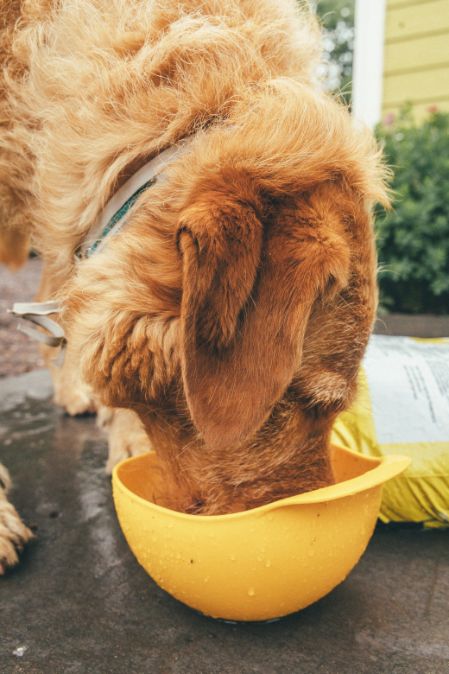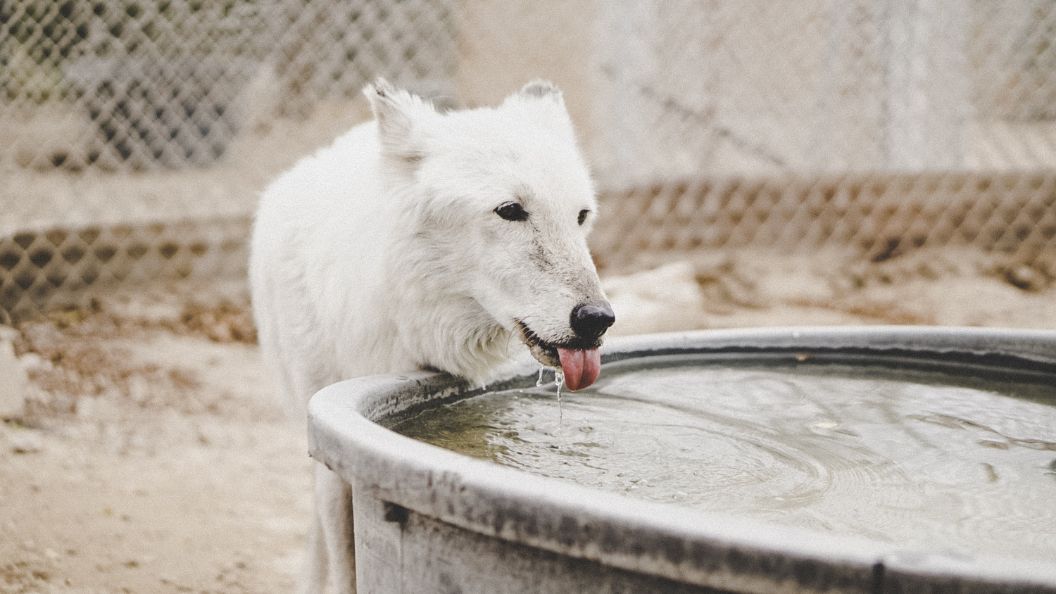Your dog’s daily water consumption is crucial to his health, just like it is for you. Adult dogs typically require one ounce of water per pound of body weight per day. In spite of their smaller size, growing puppies drink more than their adult counterparts. Puppies in their early stages typically require half a cup of water every two hours. For more information on puppy drinking, please read this article.
The Importance Of Water For Puppies
Everything from digestion to brain function, blood flow, and breathing are made easier by water in the body. Blood is primarily made up of water, and as it circulates through your dog’s body, it removes dangerous toxins and carries oxygen. This exchange cannot take place without water, which may harm important organs.
Water also controls your puppy’s body temperature. Your dog may pant in hot weather. By releasing water through evaporation, panting helps a dog stay cool. On the other hand, he may need to drink more water than usual because he is losing water through his tongue.
How Much Water Should A Puppy Drink?
Young puppies need 0.5 cups of water every two hours as they switch from mother’s milk to solid food. As soon as they are weaned, they should be consuming 0.5 to 1 fluid ounce per pound of body weight every day.
Setting up a schedule is one of the best ways to ensure that your puppy is getting enough water. Rationalize his intake as opposed to leaving a bowl of water out for him to drink whenever.
Call your puppy after adding the right amount of water to his bowl every few hours. Encourage him to drink the water, and when he does, commend him and give him a short period of playtime.
The majority of dogs figure out how much water they need on their own, but when they first start out, it’s crucial to keep an eye on them. Dehydration can result from a lack of water intake, but it is also possible to overhydrate.

Common Causes For Puppy Dehydration
Dehydration in a dog or puppy could occur for a variety of reasons. They include:
- Consuming Undigestible Things. Puppies frequently chew on and consume non-digestible objects like toys, ribbons, string, trash, or even chemicals. These ingested substances may result in fluid losses from vomiting and diarrhea.
- Exercise. Puppies are often very energetic, and vigorous play can cause fluid depletion.
- Heat. When exposed to extremely hot temperatures, excessive water loss can happen. Never let a puppy stay out in the sun without shade, and never leave your dog in an enclosed car.
- Parasites. Puppies are born with worm-like intestinal parasites that can cause diarrhea and water loss.
- Viruses. Different viruses can affect puppies, resulting in symptoms like nausea, vomiting, diarrhea, loss of appetite, and lethargy that causes dehydration. Parvovirus is a virus that frequently affects puppies.
Dehydration In Dogs
The majority of dogs, even young ones, naturally self-regulate their water intake. In some circumstances, however, your puppy may not drink enough and run the risk of becoming dehydrated.
Dehydration can be brought on by a number of factors, such as vomiting, fever, frequent urination, or diarrhea. It’s also possible that your puppy isn’t getting enough water if he only eats dry food.
Furthermore, some dogs simply don’t seem to be particularly tempted by their bowl of fresh water.
In addition to observing any of the factors we mentioned, you can determine whether your puppy is getting enough water by keeping track of his intake and comparing it to its water-to-body-weight ratio.
In order to quickly test for dehydration, you can also perform the following tests:
- Gently grasp, extend, and release the scruff of your puppy’s neck. The skin ought to reattach itself instantly. Your dog is dehydrated if it takes a long time to snap back.
- If his gums are dry or sticky, he needs to drink more water.
- Your gentle pressure on his gums will momentarily stop the blood flow. His gums turn white as you press them. The area should turn healthy pink again in two seconds after you release the pressure. Your puppy is dehydrated if it takes longer. A normal dog’s gums refill instantly, but a dog who is dehydrated may need up to three seconds (or longer) to do so.
If your puppy doesn’t seem to be drinking enough water, you can make some adjustments in your home to encourage him to do so:
- Make sure his water bowl is spotless and add fresh water to it.
- Put his water bowl close to his food, his bed, or any other area of the house where he enjoys relaxing.
- Praise him when he drinks and give him a treat as a reward.
- Make his water more appealing by adding bone broth or chicken broth to it.
- Give him some ice cubes; some dogs enjoy chewing on them, and this is another way to get them to drink more water.
Overhydration In Dogs
Pay attention if it appears that your puppy is consuming too much water. Puppies in particular are extremely curious dogs. Your puppy may simply be playing in his water bowl, which is more of a behavioral problem than a health issue.
But if you believe your puppy is spending more time drinking than playing, a medical problem that needs to be treated right away may be present.
A high fever, an infection, or more serious chronic conditions like diabetes, Cushing’s disease, kidney, or liver disease may all be symptoms of excessive drinking.
The following are signs of overhydration:
- Nausea
- Vomiting
- Lack of coordination
- Lethargy
- Bloating
- Dilated pupils
- Excessive salivation
- Pale gums
Final Words
As you can see, getting enough water is crucial for your puppy to stay healthy and sleep soundly all night. Monitoring water intake is equally crucial and ought to become a regular part of daily care. Your puppy’s overall health and happiness are influenced by proper hydration.





